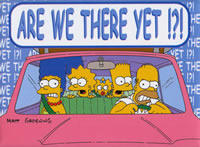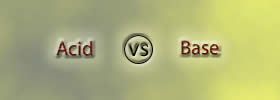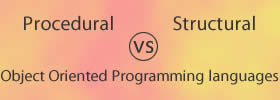Difference between There and Their
Key difference: ‘There’ and ‘Their’ are two difference words that denote two very difference meanings. ‘There’ is used to denote a location. ‘Their,’ on the other hand, is a pronoun which is used to denote possession, such as my, his, her, their.

‘There’ and ‘Their’ are two difference words that denote two very difference meanings. ‘There’ is used to denote a location. ‘Their,’ on the other hand, is a pronoun which is used to denote possession, such as my, his, her, their. Let’s look at the definition.
Dictionary.com defines ‘There’ as:
- In or at that place (opposed to here): She is there now.
- At that point in an action, speech, etc.: He stopped there for applause.
- In that matter, particular, or respect: His anger was justified there.
- Into or to that place; thither: We went there last year.
- (Used by way of calling attention to something or someone): There they go.
- In or at that place where you are: Well, hi there.
- (Used to introduce a sentence or clause in which the verb comes before its subject or has no complement): There is no hope.
- That place: He comes from there, too.
- That point.
- That state or condition: I'll introduce you to her, but you're on your own from there on.
- (Used for emphasis, especially after a noun modified by a demonstrative adjective): Ask that man there.
Dictionary.com defines ‘Their’ as:
- A form of the possessive case of they used as an attributive adjective, before a noun: their home; their rights as citizens; their departure for Rome.
- (Used after an indefinite singular antecedent in place of the definite masculine form his or the definite feminine form her): Someone left their book on the table. Did everyone bring their lunch?
Essentially, ‘there’ is a location. It is used to denote a place, a place which is not here. This is an easy way to remember the usage of there; it is the opposite of the word, here. For example, “I live here not there.” The word ‘here’ is in fact a part of the word ‘there’.
 The term “their”, on the other hand, is a possessive pronoun, which means that it used to indicate ownership. Pronouns are words that always describe a noun. Hence, a possessive pronoun will denote the possession of a noun. For example: Instead of saying, “Look it is Mary and John driving up the street in Mary and John’s new car”; we would say, “Look it is Mary and John driving up the street in their new car”.
The term “their”, on the other hand, is a possessive pronoun, which means that it used to indicate ownership. Pronouns are words that always describe a noun. Hence, a possessive pronoun will denote the possession of a noun. For example: Instead of saying, “Look it is Mary and John driving up the street in Mary and John’s new car”; we would say, “Look it is Mary and John driving up the street in their new car”.
Examples of ‘There’:
- I don't want to go there because it's too cold.
- Once upon a time, there was a princess who turned into a frog.
- Put it over there.
- What is that over there?
- There is an antique store on Camden Avenue.
- The science textbooks are over there on the floor.
- There are many documents that are used in investigations.
- There is a picnic area over here, and a monster and a campground across.
- The ball is over there.
Examples of ‘Their’:
- She was envious of their expensive shoes.
- This is their things.
- What is their phone number?
- Their house is burning down.
- My friends have lost their tickets.
- Their things were strewn about the office haphazardly.
- That is their ball.
Image Courtesy: blog.chron.com, vsual.co









Add new comment